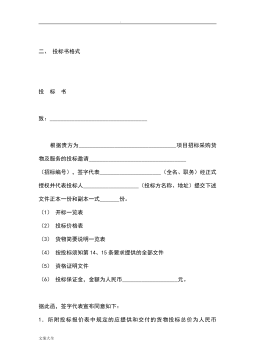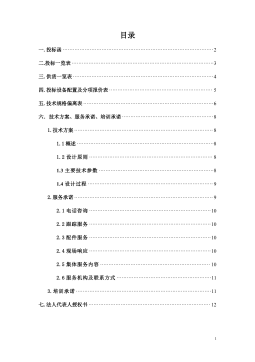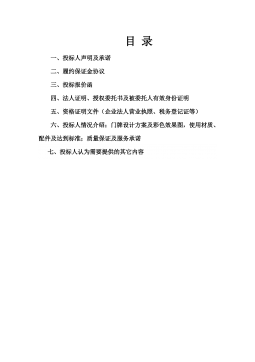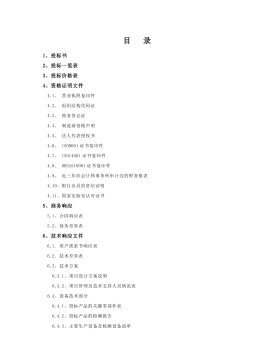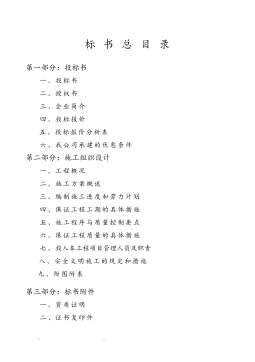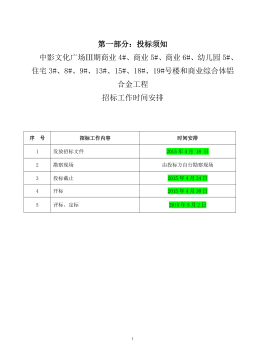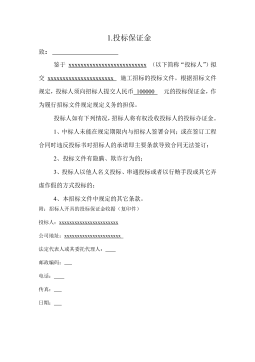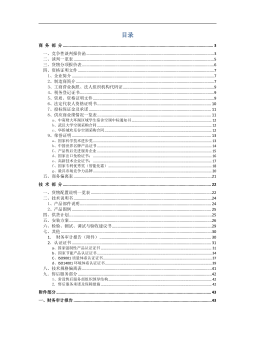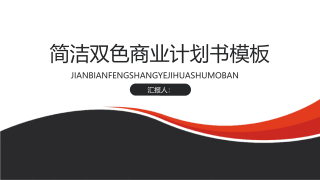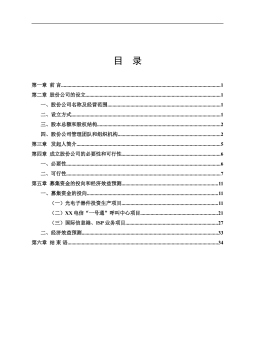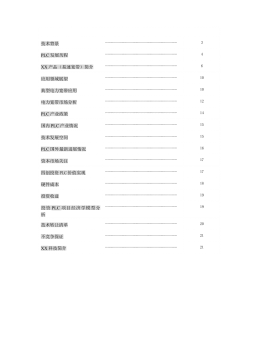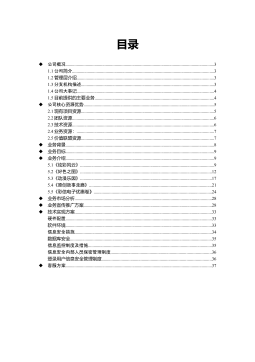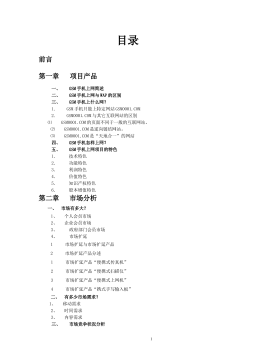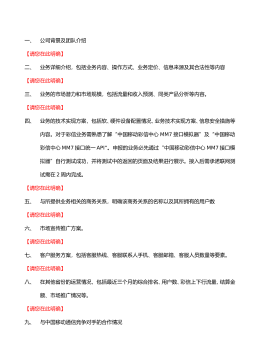从制度变迁视角看我国资源税费制度改革取向
VIP免费
浙江财经学院硕士学位论文
I
摘 要
自然资源是人类社会赖以生存和发展的物质基础,在世界各国的经济发展过程中
都具有极其重要的战略地位。对于我国这样一个发展中大国而言,资源的重要性更是不
言而喻。我国资源总量丰富,但人均占有量远远低于世界平均水平。随着我国经济高速
增长,资源需求日益膨胀,资源供给严重不足,已成为制约我国经济持续增长的主要因
素。因此,资源的合理开发和可持续利用显得尤为重要。
资源税费制度是影响一个国家资源合理开发、利用的重要因素。资源税费制度的
优劣与否直接关系到资源的开发、利用效率。评价一个税费制度是否优越,既要看其同
国内其它税费制度相比的生命力,也要看其本身的历史演化,还要看其国际竞争力,更重
要的是要看其对经济发展的促进作用。我国当前的资源税费制度与设立之初相比有很大
的进步,对国民经济的发展也起到了一定的促进作用。但随着我国经济高速增长,我国
的资源税费制度已很难适应经济发展的要求。
本文首先从界定资源及资源税费的相关概念入手,分析了我国资源税费制度的特
点和演化历程,认为我国资源税费制度的发展可以分为四个阶段,并指出“税费并存”
制度的建立是借鉴了西方“租税并存”的制度,但是对其理解不够透彻,导致了与税收
理论之间冲突的产生。同时深入分析了我国现行的资源税费制度,阐明了各种资源税费
的内在性质。
在前面实证分析的基础上,本文引入了新制度经济学制度变迁的基本理论,以制
度变迁的视角指出我国资源税费制度改革的动力主要来自两个方面:其一是制度本身的
内在缺陷,即资源税费制度本身衰退所造成的不适应性。其二是外部环境的变化所引起
的收益流的变化,即随着我国经济的高速增长,经济环境发生了巨大变化,特别是资源
要素相对价的变化导致了改革我国资源税费制度能获得巨大的收益。
循着理论分析的方向,本文站在系统高度对改革我国资源税费制度的现实背景作
了深入的研究。这其中包括经济可持续发展、财政收入增长和产业结构优化,这三个方
面是紧密联系在一起的。缓解资源约束,实现我国经济可持续发展要求减少资源浪费,
加强节约,提高我国的资源开发利用率。达到这一目标需要明确资源产权,深化资源价
浙江财经学院硕士学位论文
II
格改革。我国当前的资源价格并没有包含经济可持续发展所要求的代内外部成本和代际
外部成本,改革资源税费,使之参与资源价格的形成,可以有效地促进资源节约,提高
资源开发利用率,并有利于产业结构调整。由于我国资源税费没有随资源价格普遍上涨
而进行调整,导致国家对资源所有权益未能实现,资源税费的财政职能弱化,不利于国
家宏观调控。改革资源税费可以促进我国的财政收入持续增长,并增强中央政府的宏观
调控能力。另外,由于资源溢价的收益未能收归国有,被上游行业无偿占有,致使行业
利润向上游采掘业转移,工业行业效益失衡,吸引投资向工业上游产业转移,扭曲了产
业结构。改革资源税费有利于产业结构优化,促进国民经济持续健康发展。
最后,本文就如何实现资源税费制度环境因素变化所产生的潜在收益,在借鉴西方
市场经济国家经验的基础上,指出了我国资源税费制度的改革方向。给出了取消矿产资
源税,改矿产资源补偿费为权利金,设立超额利润税,同时为资源企业建立资源耗竭补
偿制度的具体建议。
本文主要在以下几个方面进行了新的探索和创新:
(一)论文的分析方法
目前,针对我国资源税费制度改革的问题研究很多,从研究内容和层次来看,对策
研究比较多且比较深入,但从经济学意义上特别是从制度经济学的角度,对资源税费制
度改革的研究,还很难发现。本文从新的分析角度出发,运用制度变迁的理论分析方法,
以期能获得一些有价值的研究成果。
(二)论文分析的内容或提出的观点
一是当前相关研究主要是资源税费制度的缺陷分析、理论辨析和国内外资源税费制
度的对比分析,改革资源税费制度的现实背景和潜在收益的分析则相对缺乏,本文在这
方面作了深入的研究。
二是提出了改资源补偿费为权利金的同时设立超额利润税的观点。
关键词:资源税费制度;制度变迁;改革;权利金
浙江财经学院硕士学位论文
III
ABSTRACT
Natural resources are the material basis for human society to sustain and develop,
and play a very important strategic role in the economic development of all countries. As
for a large developing country like China, the importance of resource weighs much more.
Although China is abundant at the total quantity of resources, per capita is far lower
than the world average, which becomes a main factor restricting China’s continuous
economic growth. Thus, the reasonable development and sustainable utilization of
natural resources are very important.
Resource tax system is an important factor affecting the development and
utilization of natural resources of a country. The good and bad of the resource tax
system affect the efficiency for the development and utilization of resource. Compared
with the beginning of its establishment, current resource tax system has achieved great
advances and plays a promoting role in the development of national economy. However,
with the rapid growth of China economy, current resource tax system can’t meet the
requirement of economic development.
The article starts from the definition of resources and resource taxation and fee,
analyzes the feature and evolution process of China’s resource tax system, classifies the
development of resource tax system into four phases, and points out that the
establishment of “taxation and fee coexistence” in China is the reference from the
system of “rent and tax coexistence” in western countries, while not full understanding
of the western system causes the conflict in taxation theory. Meanwhile, the status of
current resource taxation and fee system is deeply analyzed, and the inherent nature of
various resource taxation and fee is elaborated.
Based on previous empirical analysis, the article introduces the basic theories of
institutional transition in New Institutional Economics, pointing out that the impetus of
reform of resource tax and fee system comes from two aspects: one is the inherent
deficiency of the system itself, namely the nonadaptability owing to the recession of the
system itself, and the other is the change of revenue flow caused by the change of
external environment, that is with the rapid economic growth, the economic
environment changes a lot, especially the change of relative price of resource factors
generates great revenue out of the reform of the resource tax system.
After the theoretical analysis, the article has a depth research into the practical
background of the reform at the height of system, mainly on three inter-related aspects,
浙江财经学院硕士学位论文
IV
sustainable economic development, increase of fiscal revenue and the optimization of
industrial structure. In order to relieve the restriction of resources and realize the
sustainable economic development, the reduction of resource waste and the
improvement of the utilization ratio of resource are required. For this objective, the
property rights of resources needs to be made clear, the reform of the price of resource
requires to be deepened. Current price of resources does not contain the
inside-generation external cost and the inter-generation external cost, so the reform of
resource tax for its role participating in the formation of resource price and reflecting
the requirement of sustainable economic development can effectively promote the
conservation of resources, increase the utilization ratio and benefits the adjustment of
industrial structure. Since there is no adjustment of the resource taxation and fee with
the comprehensive increase of resource price, the economic rights on resources owned
by the country are not realized, the fiscal function of the resource tax is weakened, which
is not favorable to the macro-control. The reform of resource tax can facilitate the
continuous growth of the fiscal revenue, and strengthen the capability of macro-control
of the central government. Besides, the revenue from the premium is not returned to the
ownership of the country, otherwise occupied by the upper stream of relevant industries,
causing the industrial profit transferred to the upper stream mining industry, the
industrial benefit is unbalanced, investment moves to the upper stream industries, and
the industrial structure is twisted. Thus, the reform of the resource tax is favorable to
the optimization of industrial structure and guides the sustainable development of the
national economy.
In the end, regarding how to realize the potential revenue generated from the
change of environmental elements of resource tax system, the article points out the
orientation for the reform of the resource tax system with reference to the experiences of
western countries, which is to abolish mineral resource tax and that the mineral
resource compensation fee shall be reformed into loyalty, the tax for excessive profit
shall be established, meanwhile the suggestions on the establishment of the resource
exhaustion compensation system in resource development enterprises is also raised.
The article has new explorations and innovations in the following aspects mainly:
(I) Analytic method
Presently, since there are lots of researches on the reform of China’s resource tax
and fee system, on the aspect of the content and level, the research on countermeasures
weighs much, but there are fewer researches conducted in the meaning of economics,
浙江财经学院硕士学位论文
V
especially institutional economics. The article starts from a new analytical angle, and
adopts the theoretical methods of institutional transition so as to obtain some valuable
research results.
(II) Content or viewpoints of the article
First, current analyses mainly are the deficiency analysis and theoretical analysis of
resource tax and fee system, and the comparison between domestic and foreign resource
tax and fee systems, while the analysis on the actual background and potential revenue
of the reform is seldom found, so the article makes deep study on this field.
Secondly, the article puts forward the viewpoint of replacing resource
compensation fee by loyalty and establishing the tax for excessive profit at the same
time.
Key Words: resources tax and fee system; institutional transition; reform; royalty
浙江财经学院硕士学位论文
VI
目 录
第一章 绪 论····················································································································1
第一节 选题的背景和意义····························································································· 1
第二节 国内外研究综述······························································································· 2
第三节 理论工具和基本分析方法················································································· 5
第四节 论文基本思路··································································································· 5
第二章 我国资源税费制度的历史变迁及现状······································································6
第一节 资源及资源税费的相关概念 ············································································· 6
第二节 我国资源税费制度的历史变迁 ····································································· 7
第三节 我国现行的资源税费制度 ············································································· 10
第三章 我国资源税费制度改革的理论分析········································································13
第一节 制度变迁的相关理论····················································································· 13
第二节 我国资源税费制度改革的必要性 ··································································· 15
第四章 我国资源税费制度改革的背景及收益分析····························································18
第一节 资源税费制度改革与经济可持续发展 ······················································· 18
第二节 资源税费改革与财政收入增长 ··································································· 29
第三节 资源税费改革与产业结构优化 ··································································· 31
第五章 我国资源税费制度的改革取向················································································39
第一节 西方经验借鉴··································································································· 39
第二节 改革我国资源税费制度的建议 ····································································· 41
参考文献 ··································································································································49
后 记 ··································································································································51
摘要:
展开>>
收起<<
浙江财经学院硕士学位论文I摘要自然资源是人类社会赖以生存和发展的物质基础,在世界各国的经济发展过程中都具有极其重要的战略地位。对于我国这样一个发展中大国而言,资源的重要性更是不言而喻。我国资源总量丰富,但人均占有量远远低于世界平均水平。随着我国经济高速增长,资源需求日益膨胀,资源供给严重不足,已成为制约我国经济持续增长的主要因素。因此,资源的合理开发和可持续利用显得尤为重要。资源税费制度是影响一个国家资源合理开发、利用的重要因素。资源税费制度的优劣与否直接关系到资源的开发、利用效率。评价一个税费制度是否优越,既要看其同国内其它税费制度相比的生命力,也要看其本身的历史演化,还要看其国际竞争力,更...
作者:周伟光
分类:高等教育资料
价格:150积分
属性:56 页
大小:626.87KB
格式:PDF
时间:2024-09-20


